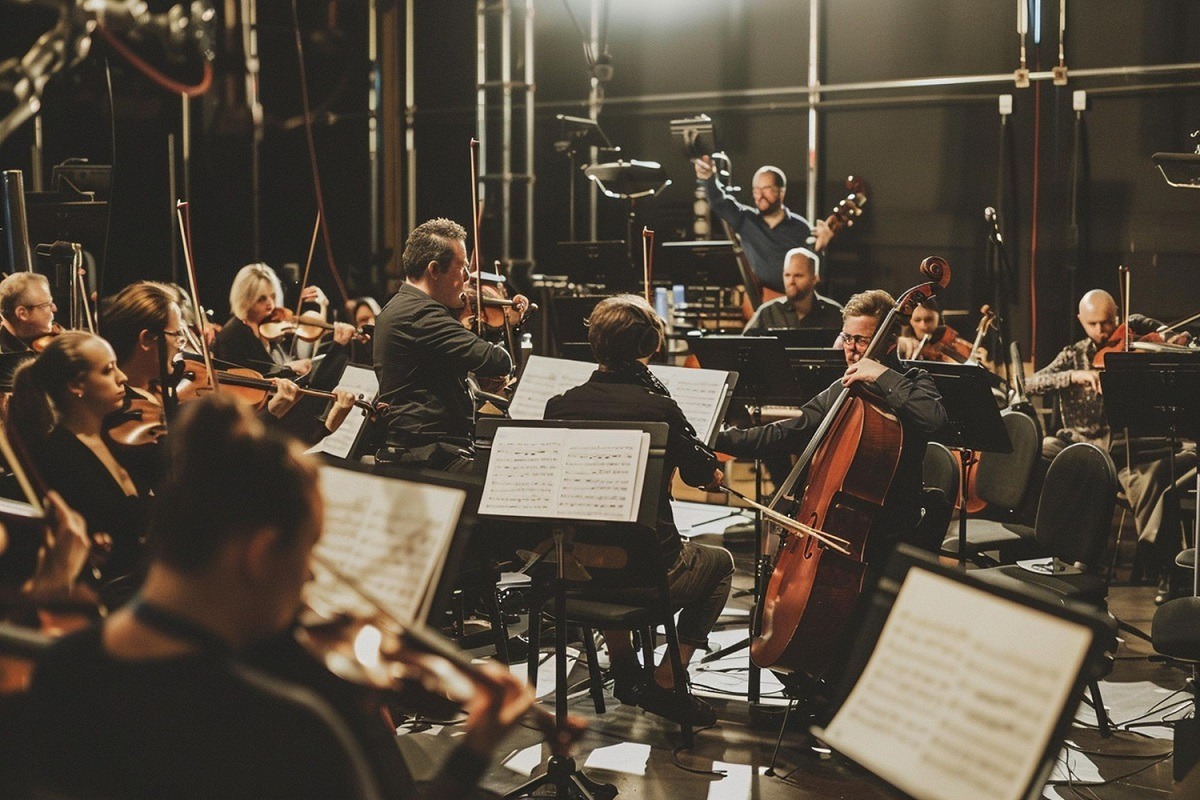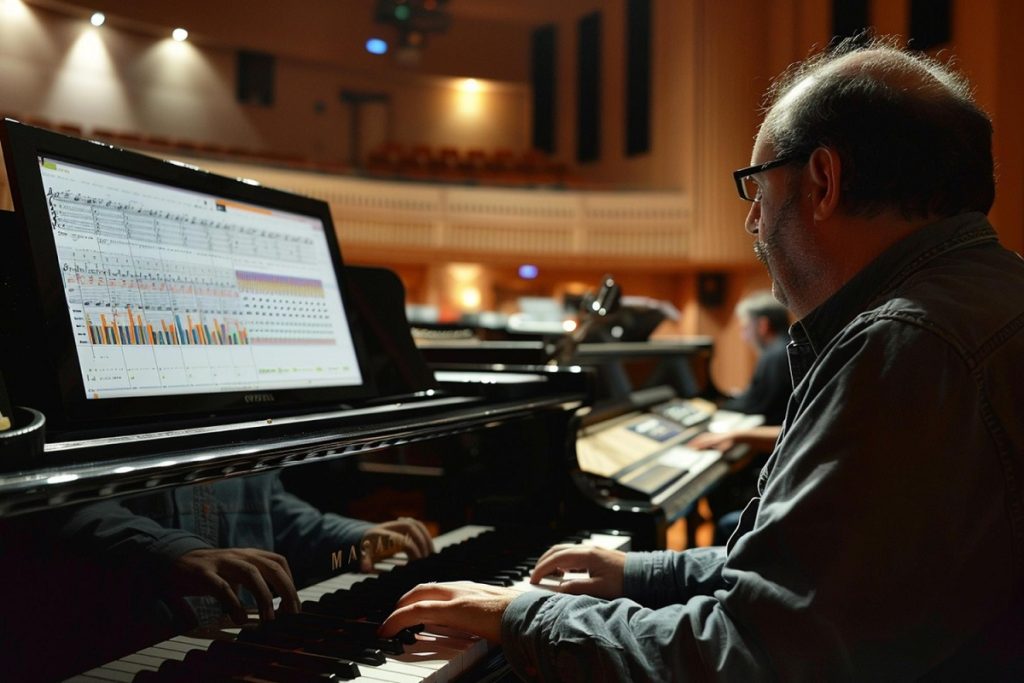Introduction to the orchestral score’s role in film
Orchestral scores are more than just background music in films. They are vital tools that enhance the storytelling prowess, mood, and atmosphere.
A well-crafted score can elevate a movie scene from memorable to iconic, permanently embedding it in the cultural zeitgeist.
Emotional and narrative enhancement through music
One of the primary functions of an orchestral score is to enhance the emotional undercurrents of a scene.
For instance, the gentle, minimalistic piano pieces of Thomas Newman in American Beauty offer a poignant counterbalance to the film’s satirical and melancholic tones.
This juxtaposition deepens the audience’s emotional engagement with the characters’ inner worlds.
Historical and cultural significance of scores
Orchestral scores also reflect historical and cultural contexts, adding a layer of authenticity or commentary. Consider Ennio Morricone’s legendary score for The Good, the Bad, and the Ugly.
The music not only underscores the tension and drama of the American Civil War period but also helped redefine the western genre with its innovative sounds and styles.
Notable composers and their transformative works
John Williams, Hans Zimmer, and Ennio Morricone are giants in the film scoring world. Williams’ score for Star Wars is monumental in its scope and instantly recognizable, weaving a musical narrative as integral as its characters and plot.
Zimmer’s innovative use of electronics and orchestration has redefined modern film music, as heard in scores like Inception and The Dark Knight.
John Williams: Crafting iconic themes
Williams’ ability to create distinct themes for characters and situations helped make his compositions part of the collective memory. His score for Jaws, with its suspenseful motifs, intensifies the fear and anticipation of the unknown lurking beneath.
Hans Zimmer: Master of atmospheric synthesis
Zimmer’s use of technology and orchestration creates rich, atmospheric layers that enhance the cinematic experience.
His score for Gladiator, for example, combines traditional orchestral elements with electronic music, offering a timeless yet contemporary feel that enhances the film’s epic narrative.
Unique anecdotes in film scoring
Behind every great score are stories of innovation and inspiration. For instance, the iconic drumbeats in Zimmer’s score for The Dark Knight were inspired by the noises of a malfunctioning printer.
Such anecdotes highlight how compositional creativity harnesses even the unexpected to serve the film’s story.
The best film scores stay with us, their melodies and chords echoing in our minds long after the credits roll.
They prove that music is not just an accessory to narrative but a vital part of the filmmaking process.
As we revisit these great scores, we relive the emotions and memories etched into our experiences by these masterful compositions.
This exploration of the importance of orchestral scores in films underscores their crucial role in enhancing and elevating cinematic art. Their capacity to communicate directly to the emotions and immerse audiences into the film’s world remains unmatched in its power and effectiveness.






